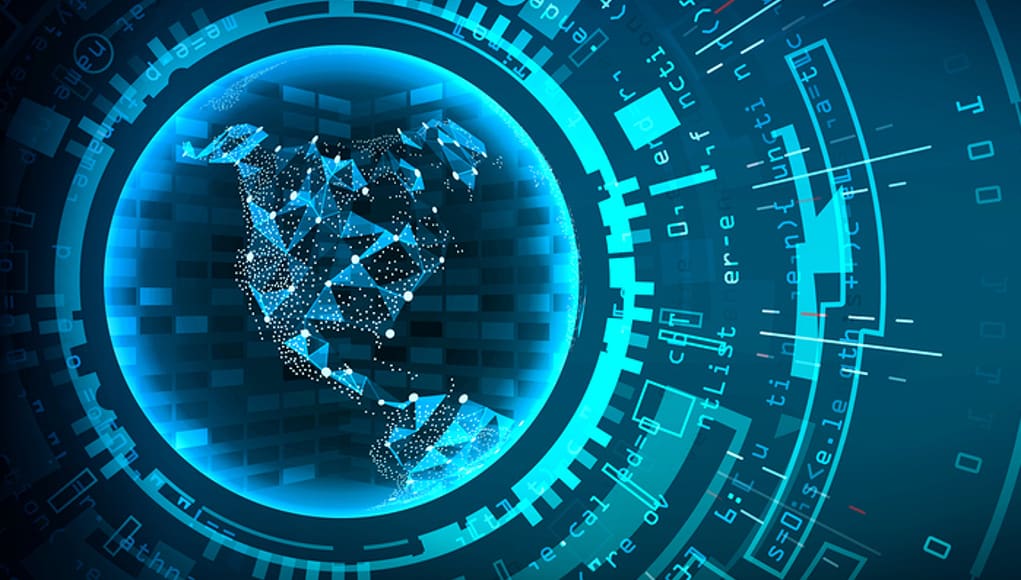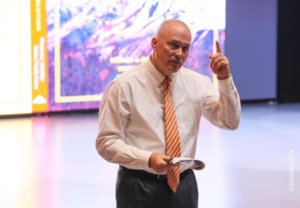On the Brink of Massive Change: Is This The Future You Want?

We stand on the brink of a technological revolution that will fundamentally alter the way we live, work and relate to one another. In its scale, scope and complexity, the transformation will be unlike anything humankind has experienced before.
~ Klaus Schwab, World Economic Forum
Our world is going to look and operate drastically different over the next two decades. Powered by exponential technology, the cost of storage and computing are near zero making it possible to crunch gigantic data sets and enabling a new generation of artificial intelligence (AI). Application development tools and enabling technologies (i.e., sensors, cameras, robots) have improved dramatically. The combination makes it possible to automate even super complex tasks like driving.

“They already are much smarter than us at many things,” said Harvard’s Erik Brynjolfsson. “The question is ‘Can we adapt fast enough?’”
It is hard to tell exactly how this will all play out, but there four primary reasons you and the young people you care about should pay attention to artificial intelligence–we think it’s time to #AskAboutAI.
1. Automation will change the nature of work for several billion people—enabling (and requiring) them to work with smart machines while increasing skill requirements and extending individual contributions.
“Machine learning drives our algorithms for demand forecasting, product search ranking, product and deals recommendations, merchandising placements, fraud detection, translations and much more,” said Jeff Bezos, CEO of Amazon. “Though less visible, much of the impact of machine learning will be of this type–quietly but meaningfully improving core operations.”
2. Waves of job losses over the next decade will impact hundreds of millions of people, as roles based on repetitive rules application are likely to be phased out. Studies vary, but a quarter to a half of U.S. jobs could be threatened by automation over the next twenty years.
“We could have a future, in the not too distant future, in which truck drivers are out of work, because trucks are automated and driverless,” said NPR host Guy Raz.
“The automation of factories has already decimated jobs in traditional manufacturing, and the rise of artificial intelligence is likely to extend this job destruction deep into the middle classes, with only the most caring, creative or supervisory roles remaining,” said Stephen Hawking.
“There is a concern that there will only be room for engineers and data scientists and other highly specialized works, and believe me as an economist, I am also scared,” said Marco Annunziata, Chief Economist at GE
“What to do about mass unemployment?” asked Elon Musk. “This is going to be a massive social challenge. There will be fewer and fewer jobs that a robot cannot do better [than a human].”
3. Them that’s got shall get. Think people are mad now? Just wait–income inequality will grow in the automation economy. “The main thing to fear today is not joblessness,” according to Harvard economist Richard Freeman, “but a future in which the earnings of workers are stagnant or falling (as robots take a greater share of high-productivity jobs), and the share of income going to the owners of the machines increases.”
Freeman suggests three postulates of robo-nomics:
1. Advances in AI and enabling technologies will make machines that are increasingly better substitutes for humans;
2. Cheaper robot work will put pressure on wages; and
3. Income will come from the ownership and financing of robots rather than human labor.
4. Ethical issues, such as genomic editing, security and privacy, and biases (taught and learned) are already outstripping civic problem-solving capacity.
“Is this the future we want?” asked Guy Raz. “Have we gotten to a place where the train has left the station? If we create robots to do everything and to do it better, where does that leave us?”
Life-Changing Opportunities
Smart machines are helping to eradicate disease, eliminate poverty and increase productivity across sectors. Information entrepreneurs are combining passion for a cause with big data sets. We call it Cause + Code.
 Education is improving with smarter learning platforms (see podcast with UW’s Zoran Popovic). There are new career pathways for building, programming and training robots like Scott Gould (pictured right), a college student on a scholarship from American Honda, has found.
Education is improving with smarter learning platforms (see podcast with UW’s Zoran Popovic). There are new career pathways for building, programming and training robots like Scott Gould (pictured right), a college student on a scholarship from American Honda, has found.
Life at home will improve with better user interfaces, chore robots, health and climate monitoring, home control and security systems, music and art.
Healthcare is positively being impacted by AI through improving diagnosis and delivery of healthcare or development of new treatments.
Transportation is one of the first domains directly targeted by AI and addressing reliability and safety–think real-time sensing and prediction of traffic, route calculations, peer-to-peer ridesharing and self-driving cars.
Public safety and security will look very different once we are able to use DNA sequencing, facial recognition and biometrics, behavior detection, and more in-depth cyber security.
Manufacturing will take new form with manufacturing 4.0 or advanced manufacturing. Imagine same-day build and delivery and improved economics of local production.
Jeremy Howard, founding researcher at fast.ai, is working on hybrid “man and machine” solutions that harness the strengths of both humans and computers; building a library of ready-to-use applications and models.
“Some tech optimists believe AI could create a world where human abilities are amplified as machines help mankind process, analyze, and evaluate the abundance of data that creates today’s world, allowing humans to spend more time engaged in high-level thinking, creativity, and decision-making”.
Solutions To Consider
With fears of what AI could entail, how could we build the future that we want?
Economist Erik Brynjolfsson states “technology is not destiny–we shape our destiny.” His optimistic beliefs are that we could eliminate global poverty and disease and we could be living in a vastly better world. But it will require some intentional leadership.
Legislation will be necessary to dampen the impacts of impending labor disruption. Although advances will eliminate jobs, it will generate wealth that could allow us to provide everyone with basic needs like food, health, wellness.
Narrowing the divide will require a new social contract that may include a guaranteed income. Elon Musk believes automation will force us into supporting universal basic income due to a decrease in the number of jobs that will be readily available.
Richard Freeman mentions tax incentives for firms that give workers ownership shares and a say in how new technologies are implemented.
“While the ultimate effects on income levels and distribution are not inevitable, they depend substantially on government policies, on the way companies choose to organize work, and on decisions by individuals to invest in learning new skills and seeking new types of work and income opportunities,” noted the Stanford AI100 study.
Bill Gates has suggested that “The robot that takes away your job should pay taxes.”
Want “batch of one” manufacturing, smart service centers, and drone plants? It will take a regional approach to skilling up fast. Regions that mobilizing people and helping them to build the skills, will win.
“We do not yet know just how it will unfold,” said Klaus Schwab, WEF, “but one thing is clear: the response to it must be integrated and comprehensive, involving all stakeholders of the global polity, from the public and private sectors to academia and civil society.”
Our #AskAboutAI campaign investigates the implications of AI on employment, education and ethics. For more, visit our series page and see:
- RAMTEC Robotics: A Path to Employment & Economic Development
- #AskAboutAI: Informing Educators, Parents and Policymakers About Life With Smart Machines
- Getting Smart Podcast | Zoran Popovic on Accelerated Learning with Smart Tools








Drew
Hi, interesting stuff. AI is certainly going to advance and change our world dramatically! The column I read right before this actually explains how AI + driverless cars t will affect real estate prices. http://me.richtrek.com/2015/09/why-buying-real-estate-in-los-angeles.html interesting theory, agree or disagree. Cheers, hope it adds